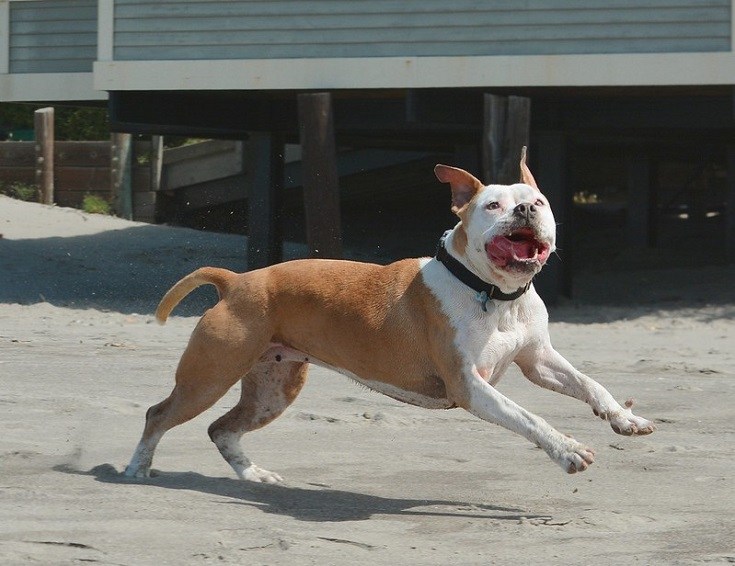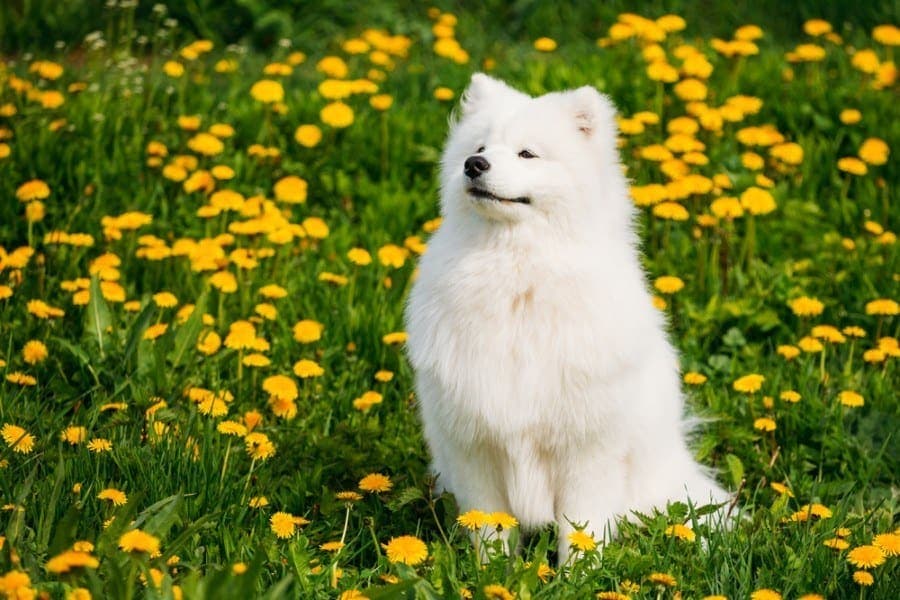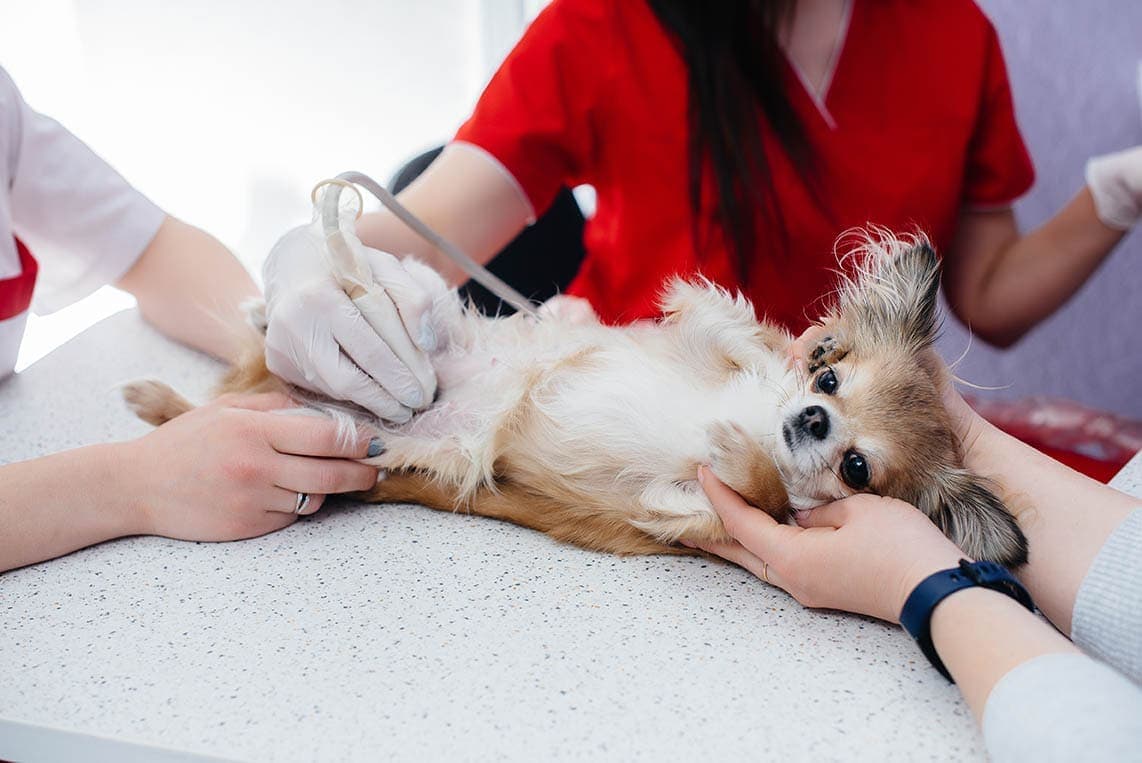Can Shih Tzus Eat Apples? A Guide to Safe & Healthy Treats
Updated on
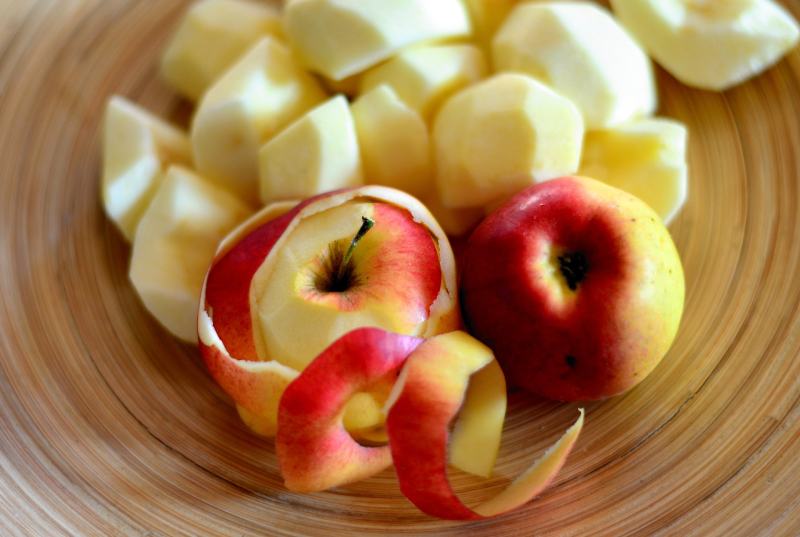
Most dogs are indiscriminate scavengers of scraps, and Shih Tzus are no exception. If it bears any resemblance to food and it’s left lying around, there’s a good chance it’ll be wolfed down. Sometimes, they may sample it preliminarily, but not always.
Most of us have experienced that moment of panic after witnessing our beloved pooch gulping down something unintended. The agonizing minutes and hours that follow while we madly research the safety or ill effects of the unintended meal feel like a lifetime. There are long lists of, often surprising, foods that are not good for dogs—some of which can be downright deadly.
It seems unlikely that an apple would offer any temptation to your diminutive canine, but you’d be surprised. What if your darling Delilah sneaks down that slice of apple leftover from lunch? Should you panic? Not in the least! You can relax—apples are not only safe, but also very nutritious.
A Little Bit About the Humble Apple
An apple a day keeps the doctor away, right? It seems that there is truth in that for your canine family members too.
The humble apple is a superfood that packs a nutritious punch for both you and your fur baby. It is high in Vitamin C, which is essential for immune system support. Vitamin C also helps with the body’s formation and maintenance of connective tissues, such as bones and skin. Apples are also a great source of dietary fiber, calcium, B vitamins, vitamins A and K, potassium, copper, and phosphorus.
Apples contain healthy sugar, fructose, that is not linked to canine diabetes or canine obesity. The juicy fruits are also very hydrating since they contain around 86% water.
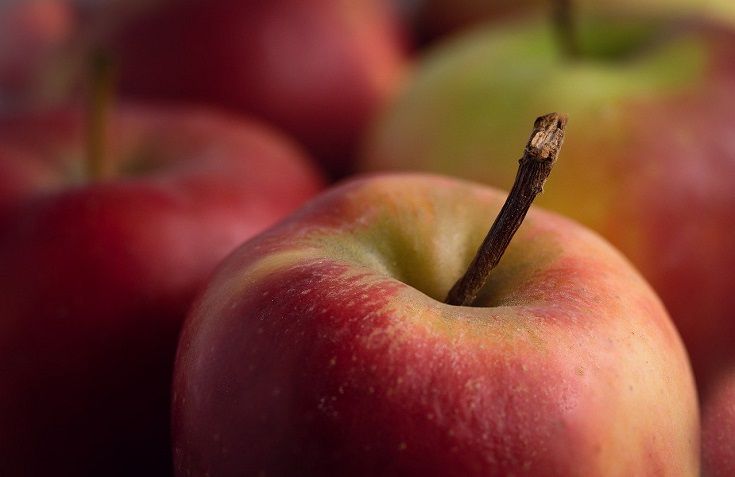
Why You Should Feed Your Shih Tzu Apple—and How
Having established that apples offer enormous health benefits, there’s no reason why they shouldn’t be included in your Shih Tzu’s diet. In fact, we think that they absolutely should. Here’s why and how, plus an important caveat.
Topping the list of reasons to feed your Shih Tzu apples are the nutritional benefits that they offer. Research indicates that the powerful phytochemicals in apples may afford anticancer and antioxidant properties1. Their firm texture is also good for their teeth and gums and causes saliva production, which, in turn, helps with the eradication of harmful bacteria in the mouth.
Half an apple twice a day is a good amount to feed. The apple should be cored and cut into slices before being offered to your Shih Tzu.
With that said, a couple of warnings about the inclusion of apples in your Shih Tzu’s diet need to be disclosed. First, dogs with kidney problems should not be fed apples, as the high levels of calcium and phosphorus can aggravate these problems. Secondly, apple seeds contain a form of cyanide, which in correct amounts can be a deadly poison. Therefore, it’s advisable to never feed your pooch the apple core containing the seeds.
What Fruit Should Shih Tzus Not Eat?
Several fruits should never pass your Shih Tzu’s lips. For example, under no circumstances should your fur child eat cherries, raisins, or grapes. These fruits are toxic to dogs and, in certain and plausible quantities, can be fatal. Prunes, though not toxic, should also be avoided as they can cause digestive distress.
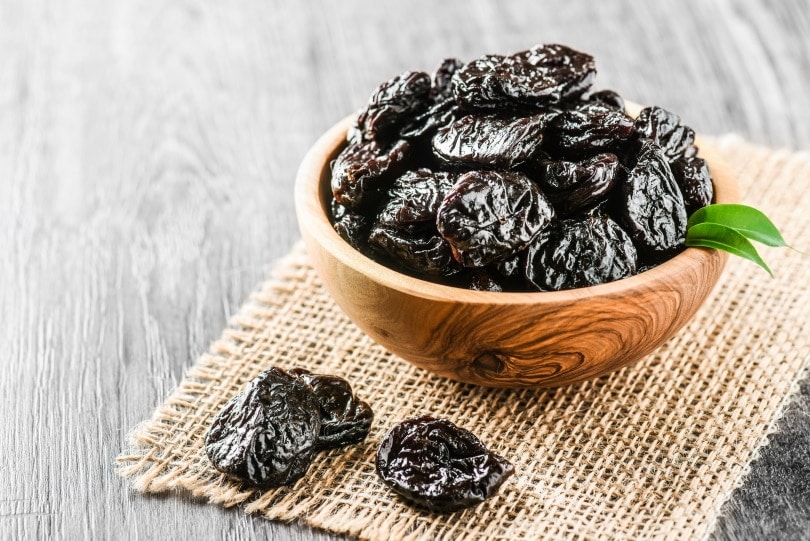
What Human Food Can’t Shih Tzus Eat?
Although dogs and humans have digestive systems that have evolved to best suit each species, there are many human foods that your Shih Tzu can also enjoy. Most of them, in fact. For that reason, this question is best approached from the other point of view, by looking at human foods that shouldn’t be shared with your Shih Tzu.
Aside from the toxic fruits mentioned above, Shih Tzus should not be offered avocados, citrus fruit, coconut, nuts, or cinnamon. They should also not indulge in foods containing garlic, chives, or onions. The occasional raw egg is OK, but don’t overdo it. They should not be offered raw meat for the same reason that we should not eat it—it may contain bacteria that can cause food poisoning.
Your silky-haired companion should never consume ice cream, coffee, alcohol, chocolate, or any other caffeine-containing products. Even foods that would normally be highly palatable for your Shih Tzu like turkey and edible vegetables should probably be avoided if they have been prepared for the human plate. This is because we generally use salts, spices, sauces, and other processed products to prepare our meals, and these are not good for your Shih Tzu.
Finally, xylitol must be avoided at all costs, as it is highly toxic to dogs. Make sure that the products you share with your precious pooch do not contain this substance.
What Constitutes a Healthy Shih Tzu Diet?
A healthy Shih Tzu diet should be balanced and include a bit of variation. Take care to avoid the previously mentioned toxic foods and substances, as well as those that are unsuitable for other reasons. It is always best to try and incorporate fresh ingredients, making sure to include plenty of single-source, protein-rich options—such as chicken, lamb, beef, turkey, and fish.
There are many high-quality commercial dog foods available that are specifically formulated for toy breeds. Additionally, select a food that is age appropriate—one that has been prepared for your small pup, adolescent, adult, or senior Shih Tzu.
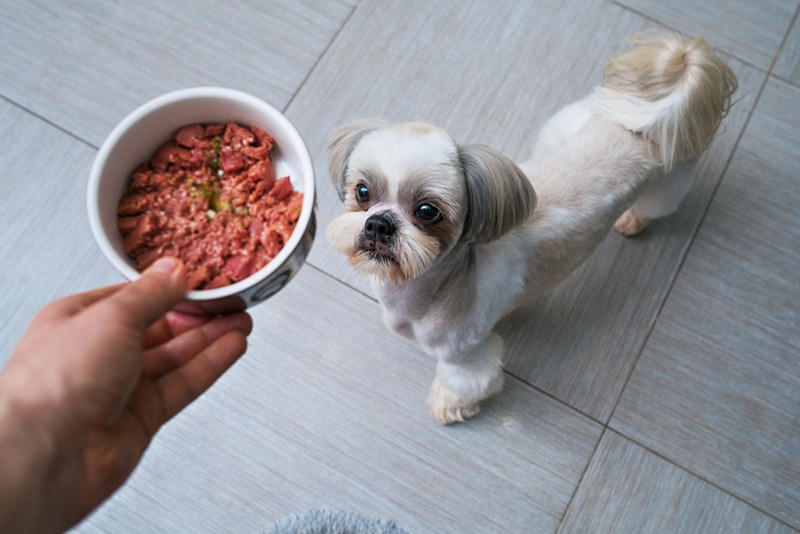
How Often Should Shih Tzus Be Fed?
Shih Tzus have a fast metabolism for such small dogs. This means they are likely to have very healthy appetites and may eat more than you might expect. They also need to be fed frequently. Unlike bigger dogs that can get away with 1–2 meals a day, your adult Shih Tzu needs 2–3 meals per day.
Puppies under three months of age should be either fed 5–6 meals a day or free-fed. Free-feeding entails always having fresh food available for the pup to snack on at will. The reason for this preferred approach in the little ones is that they are prone to hypoglycemia, which can be triggered by even moderate fasting. Puppies between the ages of three months and a year old can be fed 3–4 meals a day.
Final Thoughts
Apples are a big thumbs up for inclusion in your Shih Tzu’s diet. If you’ve never offered your Shih Tzu apples before, it’s difficult to know what reaction to expect when you first do so. This may be the case if your dog is already set in their culinary ways. If nothing else, it might be a good comedic exercise!
Aside from apples and other appropriate fresh fruit, vegetables, and meats, ensure that a balanced diet free of additives and fillers is offered. Make sure you are familiar with, and avoid, the foods we have listed that can cause your special pooch harm, and you will have many years of gastronomic joy to come.
Featured Image Credit: congerdesign, Pixabay


